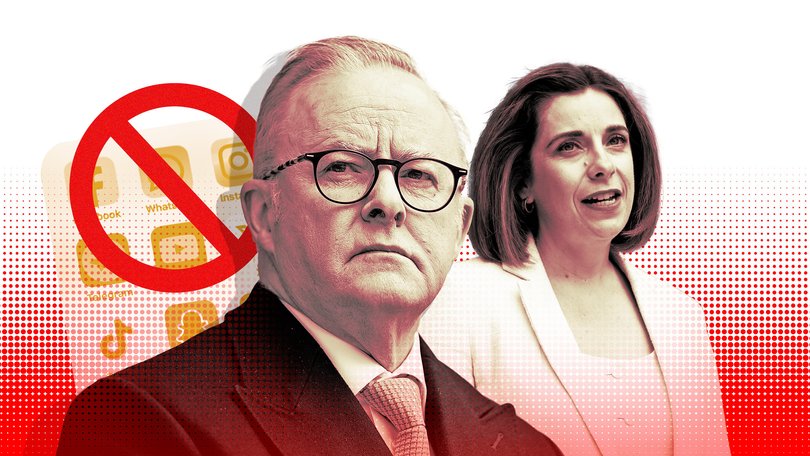EDITORIAL: Harmful content is the problem, not kids
EDITORIAL: Social media isn’t inherently bad. The problem is harmful content and online predators. The Government should focus its efforts on removing those dangers, instead of children.

Moral panics about the supposed corrupting influences of new technologies are nothing new.
We’ve seen examples since the invention of the printing press sparked 15th century fears that it would be used to spread vulgar material among the masses (to be fair, they got that one right).
So what makes the panic about social media different?
Sign up to The Nightly's newsletters.
Get the first look at the digital newspaper, curated daily stories and breaking headlines delivered to your inbox.
By continuing you agree to our Terms and Privacy Policy.For a start, we know a lot more about what it does to young minds, and its impacts are far more harmful and wide-reaching than a few volumes of smutty poems in Middle English.
According to the results of a 2021 global survey by the World Health Organization, 11 per cent of adolescents showed signs of problematic social media behaviour, which is associated with lower mental and social well-being and higher levels of substance use than their peers.
And then there is the torrent of online predators, cyberbullies, body image pressures, pornography and extremists looking for impressionable young minds to distort with racism and misogyny.
There is no more serious challenge than how we protect kids from these threats.
The Government’s solution is a blanket social media ban for under-16s. That ban will even be extended to include video-sharing platform YouTube.
There’s no doubt this legislation is well-intentioned.
But on its face, an outright ban feels like applying a sledgehammer to a problem that needs a scalpel.
Its chief advantage is that it will empower parents to say no. It’s a lot easier for households to enforce a rule if they know the rule is the same in the homes of their children’s peers as well.
But even if kids don’t immediately figure out workarounds — which they will — it feels misguided.
The YouTube ban is a prime example. It won’t stop kids accessing YouTube content, but it will stop them from doing so from an account. That will mean kids miss out on some safety features designed for young people.
Social media isn’t inherently bad. Used correctly, it can be a powerful tool of connection, particularly for those who feel out of place among their classmates.
The problem is harmful content and online predators. The Government should focus its efforts on removing those dangers, instead of children.
The internet is where generation alpha live. It’s their town square. Exiling them from it will, at best, only grant a short reprieve from its problems.
Australia isn’t the first jurisdiction to try to restrict kids’ activity online.
About half of all States in the US passed legislation last year designed to do exactly that. The laws varied between States, with some requiring parental consent before children can sign up for an account. Others banned the use of addictive algorithms to serve up teens content, designed to keep them scrolling for longer.
Those laws have been subject to legal challenge on the basis that they are a violation of America’s cherished First Amendment rights.
Australia may not have a legally enshrined right to freedom of speech to stand in the Parliament’s way, but that doesn’t make the consideration of less consequence.
